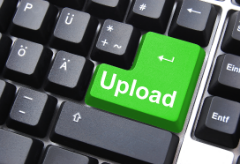Danish ISPs Stand Up Against ‘Mafia-Like’ Copyright Trolls
mardi 30 mai 2017 à 17:01 In recent years, file-sharers all across Europe have been threatened with lawsuits, if they don’t pay a significant settlement fee.
In recent years, file-sharers all across Europe have been threatened with lawsuits, if they don’t pay a significant settlement fee.
The process was pioneered in Germany where it turned into an industry by itself, and copyright holders later went after alleged pirates in the UK, Finland and elsewhere.
These so-called “copyright trolls” have also landed in Denmark, where the number of targeted Internet subscribers is growing at a rapid rate.
In 2015, rightsholders received permission from courts to obtain the personal details of 6,187 alleged BitTorrent pirates, based on their IP-addresses. A year later the number of accused subscribers increased by nearly 250 percent, to 21,163.
Local ISPs are not happy with this development and plan to fight it in court, Berlingske Business reports.
“We think there is a fundamental legal problem because the courts do not really decide what is most important: the legal security of the public or the law firms’ commercial interests,” Telenor’s Legal Director Mette Eistrøm Krüger says.
As is often the case in these type anti-piracy campaigns, the rightsholders prefer to settle out of court. Thus far, no named defendant has mounted a defense before a Danish judge.
“There was a verdict in one case, and this was a default judgment because the defendant didn’t show up,” Mette Eistrøm Krüger adds.
To stop the trolling efforts from getting out of hand, Telenor is now preparing to build a new case at the Frederiksberg Court, hoping to protect the identities of its subscribers.
This is not the first time Telenor has taken action against these anti-piracy efforts. The ISP did the same in Norway, with success. Last month the Norwegian Supreme Court threw out several troll cases due to a lack of evidence.
In Denmark, Telenor is supported by fellow Internet provider Telia, which says it will be more critical toward trolling efforts going forward.
The branch organization Telecommunications Industry in Denmark notes that other ISPs are backing Telenor’s efforts as well. The group’s director, Jakob Willer, describes the copyright trolling scheme as a “mafia-like” practice, which should be stopped.
“There is full support from the industry to Telenor to take this fight and protect customers against mafia-like practices,” Willer says.
Source: TF, for the latest info on copyright, file-sharing, torrent sites and ANONYMOUS VPN services.
 Last September, EU Commission President Jean-Claude Juncker
Last September, EU Commission President Jean-Claude Juncker 
 While ‘pirate’ sports streaming sites have been around for over a decade, in recent years rightsholders have taken a more aggressive stance.
While ‘pirate’ sports streaming sites have been around for over a decade, in recent years rightsholders have taken a more aggressive stance. 
 This week we have two newcomers in our chart.
This week we have two newcomers in our chart.